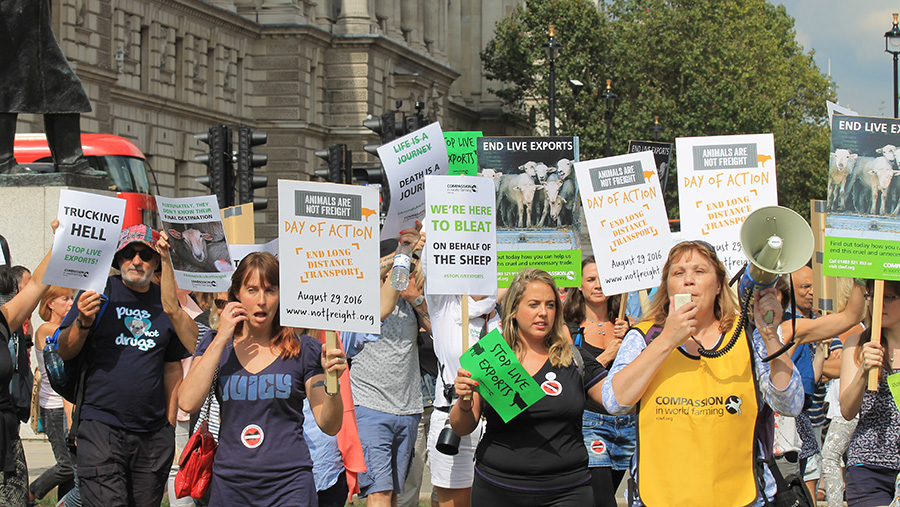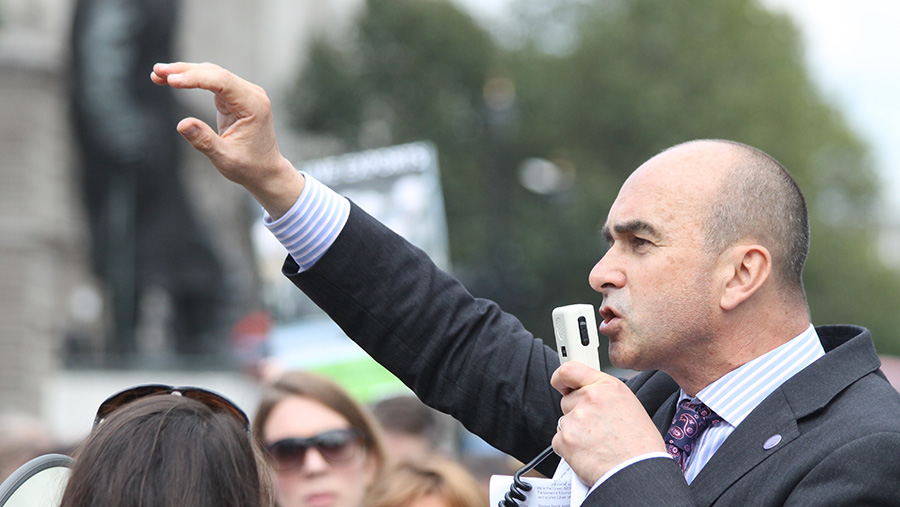Welfare groups target live exports in day of action
 © Philip Clarke/RBI
© Philip Clarke/RBI Animal welfare group Compassion in World Farming plans to use Britain’s exit from the EU as an opportunity to push for a ban on the live export of sheep and calves.
Addressing a rally in London on Monday (29 August) – one of many such events help around the world as part of a global day of action – CIWF chief executive Philip Lymbery described the trade as “shameful”.
“We want to reboot momentum to get an end to the long-distance transport of animals,” he said.
“With Brexit and all the talk of ‘taking back control’, we want the British government to take back control of animal welfare and stop this cruel and outdated trade.”
See also: Ramsgate live exports resume without incident
Such an outcome would not be easy, Green MEP Keith Taylor warned the demonstrators.
“The leave vote is not the silver bullet to this campaign. Even without any trade deal with the EU itself, we still have to cope with the [World Trade Organization] rules,” he said.
“We need our government to stand up against those archaic rules and show some leadership.
“It’s about putting pressure on the new government to be true to their claims that they would prefer a trade in meat rather than live animals.”

Compassion in World Farming chief executive Philip Lymbery addresses protesters © Philip Clarke/RBI
Mr Lymbery suggested a ban would have little economic consequence for farmers, given that the live trade has shrunk so much in recent years.
Misguided
But East Sussex sheep producer Frank Langrish believes the campaigners are misguided.
Speaking to Farmers Weekly from Ashford market in Kent, he said many of the sheep being sold locally would end up being hauled to abattoirs in the Midlands and Welsh borders to be slaughtered, whereas they could make a shorter journey to slaughterhouses in northern France and Belgium.
“There is a big market for sheep in northern Europe, which we could access in just a few hours if the regular ferries could be persuaded to take them,” he said.
“Those animals that are exported have to go on the Joline from Ramsgate – a converted Russian tank carrier that takes up to six hours to make the crossing, rather than 80 minutes on a ferry.”
Being able to send store and fat lambs across the Channel would make a massive difference to farmer returns – “at least £10 a head”, said Mr Langrish.
Peter Hardwick, international manager at AHDB Beef and Lamb, also pointed to the strict EU rules relating to transport times, rest periods, vehicle standards and other animal welfare provisions.
“Provided these are met, this is a legal trade,” he said.
Despite this, figures from AHDB show that live exports of sheep and goats have declined from 523,000 in 1999 to about 64,000 animals last year.
At its peak in the early 1990s, more than two million animals a year were being shipped.
